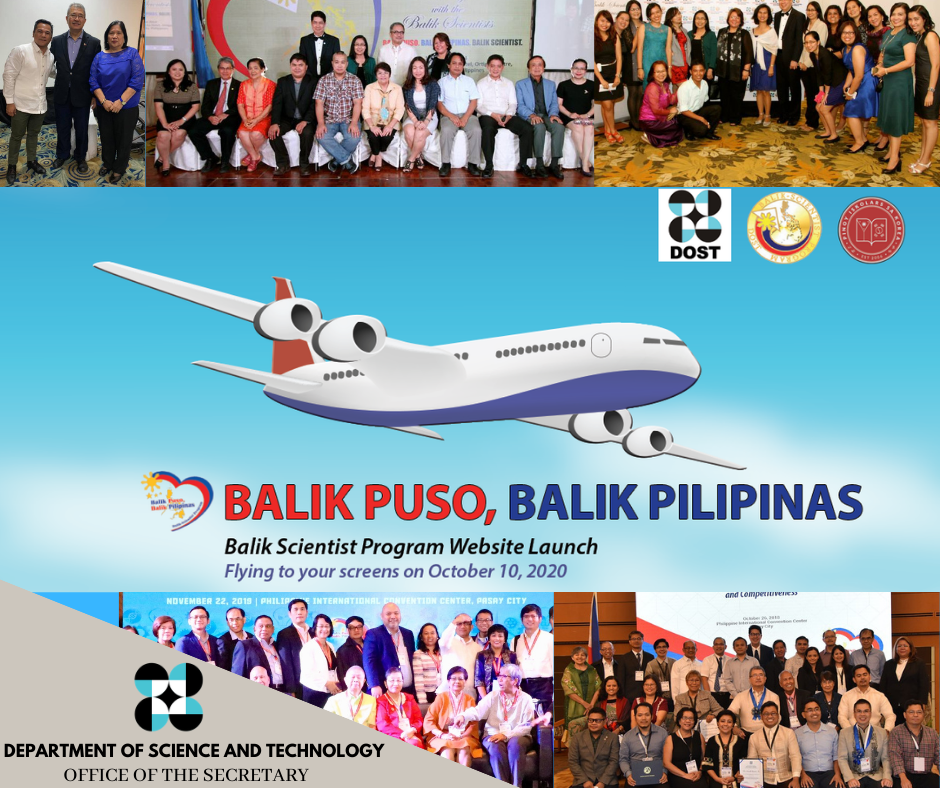


_[Note: This article was originally published from_** Newsbyte.ph**.]
The Department of Science and Technology (DOST) is aiming to beef up the pool of Filipino scientists working in the country through the launch of the “Balik Scientist Program” website.
In an online seminar, the DOST said the program aims to build capability in the country’s research and development (R&D) field in different sectors. It also aims to attract Filipino scientists, engineers, professional researchers, and the like to pitch in and “help” the country when it comes to R&D.
The Balik Scientist program was started 45 years ago, but was only made into a law in 2018.
DOST Secretary Fortunato de la Pena said the current Covid-19 pandemic is posing major challenges for the Balik Scientist program when it comes to mobility.
However, the program is still able to attract Filipino scientists to return to the Philippines for short-, medium-, and long-term “engagements” with government institutions and locally established private companies.
Dela Pena said the program currently has 555 “Balik Scientists,” and 701 engagement or projects.
The official, however, admitted that the DOST’s target number of returning scientists for 2020 may not be reached due to the pandemic. Dela Pena said there were improvements in 2018 and 2019, “but the target for 2020 will not be met.” He said the process “takes time.”
The official said Filipino scientists can work with the academe or industry groups that need “the services or expertise of the Balik Scientist program.” One good thing about the program is that the DOST can do the “matching” of scientists to the academic institution or private firm that they can work with.
Another major component of the Balik Scientist program is an international cooperation between the Philippines and several countries where Filipino scientists are working.
One of the positive developments in this area is the inclusion of more countries, such as South Korea, in the program. The DOST is currently in partnership with the “Pinoy Iskolars sa Korea (PIKO),” an organization of professionals based in South Korea.
Dr. Jubert Marquez, a post-doctoral researcher and president of PIKO, said despite challenges due to the pandemic, “PIKO continues to look for ways to help the country” through the Balik Scientists program. Marquez said one of the areas that PIKO is focusing on is how researchers can contribute to the Philippines’ “war” against Covid-19.
DOST Undersecretary Rowena Cristina L. Guevarra, meanwhile, added that the “Balik Scientist” program is supported by several government agencies that are seeking to bolster the country’s research pool. The official said there are 21 current scientists in 2020 “despite Covid-19 challenges.”
For the first half of 2020, there are more than 20 publications and 87 technologies introduced, and 289 capabilities. Some of the noteworthy areas, aside from agriculture, are robotics and genome (genetics) studies, the official said.
Successful applicants in the program are given financial and other major benefits. These will include insurance, health and medical, dental (P250,000 per illness, covering a period of engagement), a one-time incentive of P500,000 upon completion, airfare, lodgings, visa assistance, etc. There is also a tax-exempt monthly allowance of around P40,000.
The program aims to attract Filipino inventors, S&T professionals, researchers, and engineers, among others. The host institution can be the academe, government, or locally registered enterprises.